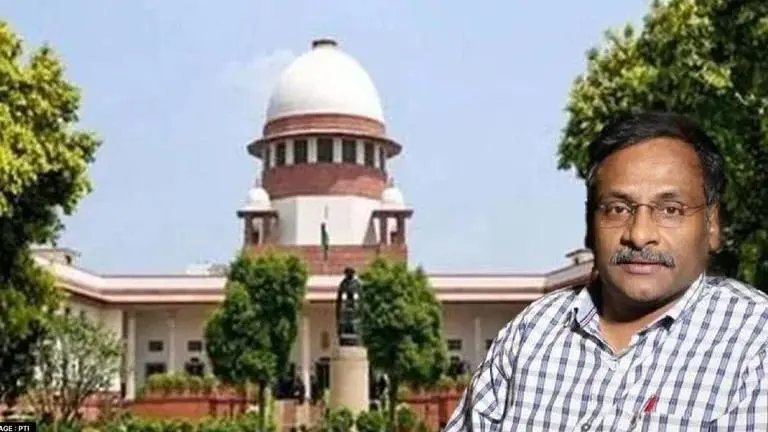Updated 19 April 2023 at 20:20 IST
SC sets aside Bombay HC order acquitting ex-DU professor Saibaba in Maoist links case
It said that question of law, including sanction under the Unlawful Activities (Prevention) Act (UAPA), is to remain open for adjudication by the high court. The top court had on October 15 suspended the Bombay High Court order acquitting Saibaba and others in the case.
- India News
- 3 min read

The Supreme Court on Wednesday set aside a Bombay High Court order acquitting former Delhi University professor G N Saibaba in a Maoist links case and remanded it to the high court for fresh consideration on merits within four months.
A bench of justices M R Shah and CT Ravikumar directed the chief justice of the Bombay High Court to place Saibaba's appeal and that of other accused not before the same bench which had discharged them but another bench.
It said that question of law, including sanction under the Unlawful Activities (Prevention) Act (UAPA), is to remain open for adjudication by the high court.
"We set aside the impugned common judgement and order passed by the Bombay High Court. The matters are remitted back to the high court to decide the said appeals afresh in accordance with law and on its own merits, including the question of sanction," the bench said.
Advertisement
The order came on an appeal filed by the Maharashtra government challenging the high court order.
Additional Solicitor General SV Raju and advocate Abhikalp Pratap Singh appeared for the Maharashtra government and senior advocate R Basant represented Saibaba in the case in the apex court.
Advertisement
The top court on October 15 last year had suspended the high court order acquitting Saibaba and others in a Maoist-links case, saying the merits of the case was not considered while granting them the relief.
In a special hearing conducted on Saturday, the apex court had rejected Saibaba's request to order his release from jail due to his disability and health conditions and put him under house arrest after the Maharashtra government opposed the prayer, saying nowadays, there is a new tendency of "urban Naxals" to seek house arrest.
More than eight years after his arrest in 2014, the Bombay High Court on October 14 last year acquitted Saibaba and ordered his release from jail, noting that the sanction order issued to prosecute the accused in the case under the stringent provisions of the UAPA was "bad in law and invalid".
The Nagpur bench of the high court had allowed the appeal filed by Saibaba challenging a 2017 order of the trial court convicting and sentencing him to life imprisonment for offences under provisions of UAPA and the Indian Penal Code.
Apart from Saibaba, the high court had acquitted Mahesh Kariman Tirki, Pandu Pora Narote (both farmers), Hem Keshavdatta Mishra (student) and Prashant Sanglikar (journalist), who were sentenced to life imprisonment, and Vijay Tirki (labourer), who was sentenced to 10 years in jail. Narote died during the pendency of the appeal.
Published By : Press Trust Of India
Published On: 19 April 2023 at 12:12 IST
